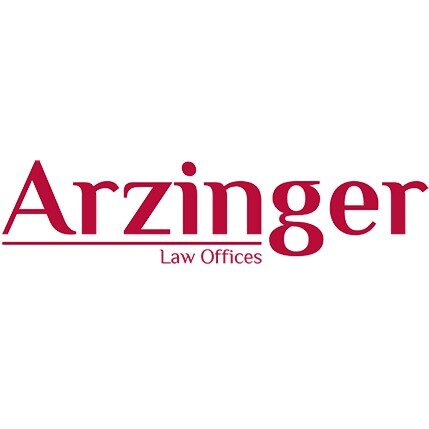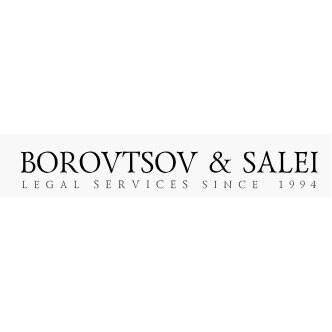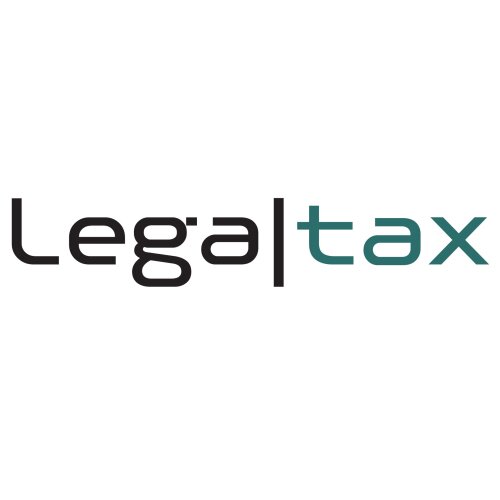Best Nonprofit & Charitable Organizations Lawyers in Belarus
Share your needs with us, get contacted by law firms.
Free. Takes 2 min.
Or refine your search by selecting a city:
List of the best lawyers in Belarus
About Nonprofit & Charitable Organizations Law in Belarus
Nonprofit and charitable organizations in Belarus operate under a unique legal framework distinct from commercial entities. These organizations are primarily governed by the Civil Code of the Republic of Belarus, the Law on Public Associations, and other related regulations. They play a vital role in society by addressing social issues, promoting cultural values, and providing public services. The legal structure ensures that these organizations fulfill their missions without engaging in profit-making activities, distinguishing them from traditional businesses. Understanding the legal requirements is crucial for their efficient and lawful operation.
Why You May Need a Lawyer
There are several situations where the expertise of a lawyer may be beneficial when dealing with nonprofit and charitable organizations in Belarus:
- Formation and Registration: Establishing a nonprofit organization requires understanding the registration process and compliance with local laws.
- Governance Issues: Lawyers can advise on creating bylaws and internal policies to ensure good governance.
- Tax Matters: Navigating the tax obligations and benefits applicable to nonprofit organizations can be complex.
- Contractual Agreements: Drafting and reviewing contracts for partnerships and service agreements are areas where legal expertise is critical.
- Regulation Compliance: Ensuring that activities remain within the legal requirements to avoid penalties and preserve the organization's status.
- Dispute Resolution: Legal guidance can be crucial in resolving disputes with donors, employees, or other organizations.
Local Laws Overview
Nonprofit organizations in Belarus are primarily influenced by the following legal structures:
- Civil Code of the Republic of Belarus: Provides the foundational legal basis for all entities, including nonprofit organizations.
- Law on Public Associations: Governs the creation, operation, and liquidation of associations and other nonprofit entities.
- Tax Code: Details the tax obligations and exemptions applicable to nonprofit organizations.
- Law on Charitable Activities: Regulates the conduct of charitable acts and receipt of funds, ensuring transparency and accountability.
Frequently Asked Questions
What is the difference between a public association and a charitable foundation?
A public association is a voluntary alliance formed by individuals or legal entities to achieve common goals. A charitable foundation is a type of nonprofit organization specifically focused on collecting and distributing funds for charitable purposes.
How can I register a nonprofit organization in Belarus?
Registration is conducted through the Ministry of Justice or local executive bodies. Documentation required includes the organization's charter, founding documents, and information about the founders.
Are there tax benefits for nonprofit organizations in Belarus?
Yes, nonprofit organizations may be eligible for various tax benefits, including exemptions on certain types of income. It is essential to work with an accountant or lawyer to understand and apply for these benefits.
What are the ongoing reporting requirements for nonprofits?
Nonprofit organizations must submit annual reports detailing their financial activities and demonstrating compliance with their stated objectives and legal requirements.
Can a nonprofit organization in Belarus engage in commercial activities?
While primarily non-commercial, nonprofits in Belarus can engage in limited commercial activities if the profits directly support their charitable goals.
How are nonprofit organizations governed in Belarus?
Nonprofits are governed by a board of directors or another designated governing body, which is responsible for ensuring the organization adheres to its bylaws, regulations, and objectives.
What kind of activities require legal compliance checks?
Activities such as fundraising, accepting foreign donations, and holding public events require stringent compliance to avoid legal issues and penalties.
Are there specific laws for foreign or international non-governmental organizations (NGOs)?
Yes, foreign NGOs operating in Belarus must comply with additional regulations and often face stricter controls compared to domestic organizations.
What are the consequences of non-compliance with nonprofit laws?
Non-compliance can result in penalties, loss of tax-exempt status, or even dissolution of the organization.
How can amendments be made to the charter of a nonprofit organization?
Amendments typically require approval from the organization's governing board and may need to be submitted to the registering authority for acknowledgment.
Additional Resources
For those seeking further information or assistance related to nonprofit organizations in Belarus, the following resources can be helpful:
- Ministry of Justice of the Republic of Belarus: Provides official information on laws and regulations affecting nonprofits.
- National Center of Legal Information: A valuable resource for accessing legal documents and updates.
- Belarusian Union of Non-Governmental Organizations: Offers networking and support for NGOs operating in Belarus.
Next Steps
If you require legal assistance with a nonprofit or charitable organization in Belarus, consider taking these steps:
- Identify Your Needs: Clearly outline the legal issue or assistance you require.
- Consult a Legal Professional: Contact a lawyer specializing in nonprofit law to discuss your specific circumstances.
- Prepare Documentation: Gather all relevant documents including the organization's charter, financial records, and any correspondence related to the issue.
- Stay Informed: Continuously educate yourself on changes in the legal landscape to better manage your organization's compliance and operations.
Lawzana helps you find the best lawyers and law firms in Belarus through a curated and pre-screened list of qualified legal professionals. Our platform offers rankings and detailed profiles of attorneys and law firms, allowing you to compare based on practice areas, including Nonprofit & Charitable Organizations, experience, and client feedback.
Each profile includes a description of the firm's areas of practice, client reviews, team members and partners, year of establishment, spoken languages, office locations, contact information, social media presence, and any published articles or resources. Most firms on our platform speak English and are experienced in both local and international legal matters.
Get a quote from top-rated law firms in Belarus — quickly, securely, and without unnecessary hassle.
Disclaimer:
The information provided on this page is for general informational purposes only and does not constitute legal advice. While we strive to ensure the accuracy and relevance of the content, legal information may change over time, and interpretations of the law can vary. You should always consult with a qualified legal professional for advice specific to your situation.
We disclaim all liability for actions taken or not taken based on the content of this page. If you believe any information is incorrect or outdated, please contact us, and we will review and update it where appropriate.
Browse nonprofit & charitable organizations law firms by city in Belarus
Refine your search by selecting a city.















